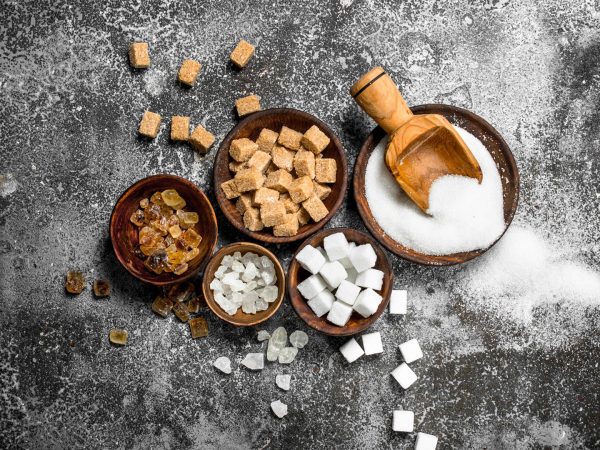Heart Disease: Is Sugar A Killer?
I know that too much sugar isn’t good for us, but I was surprised to hear that diets high in sugar can lead to heart disease and death. What’s the connection?
Andrew Weil, M.D. | July 8, 2020

The latest report on the negative effects of sugar comes from the University of Minnesota School of Public Health. It showed that sugar consumption is associated with larger fat deposits around the heart and in the abdomen. “And we know that fat deposits are connected with higher risks of heart disease and diabetes,” said study author Lyn Steffen, Ph.D., M.P.H.
The study included 3,070 healthy participants between the ages of 18 and 30. At three occasions over 20 years the investigators looked at each participant’s consumption of sugar-sweetened beverages (including soft drinks, fruit drinks, and energy drinks), as well as sugar added to foods and beverages. Near the end of the 25-year study, participants were given computed tomography (CT) scans to measure fat volumes in the abdomen and around the heart. When correlated with the dietary data, the scans showed that sugar intake over the 20-year period was related to fat stores in both areas.
We’ve long known that consuming excessive amounts of sugar is unhealthy. Earlier research linked consumption of sugar to the development of high blood pressure, increased triglycerides, low HDL (“good”) cholesterol, and fatty liver problems. It also makes insulin less effective in controlling blood sugar. A study from the U.S. Centers for Disease Control and Prevention (CDC), published in February 2014, showed that diets high in sugar increase the risk of fatal heart attacks. Americans whose diets are highest in added sugar – amounts manufacturers add to processed foods and drink, not the natural sugars in fruit or fruit juices – are twice as likely to die from heart disease as those whose daily sugar intake is low.
The amount of sugar you would have to consume to put yourself at risk totals much more than you would get from adding a teaspoon of it to your coffee or tea. The increased risk seen in the CDC study applies to those whose daily sugar intake comes to about 500 calories – one quarter of a 2,000 calorie a day diet – compared to the 160 calories per day typical of people on the low end of sugar consumption in this study. (Those 160 calories translate to 10 teaspoons of sugar, which is still too much.)
For their analysis, CDC researchers looked at data from more than 31,000 people who were interviewed in connection with the National Health and Nutrition Examination Survey. They reported that 71 percent of adults derive 10 percent or more of their daily calories from added sugar and that about 10 percent of this group consumes an astounding 25 percent or more of their daily calories from added sugar.
These findings reinforce our knowledge that sugar’s negative impact on health can slowly and insidiously accumulate over the years. In my view, the best way to satisfy a sweet tooth is through foods in which the sugar is part of a whole food, such as fresh or dried fruit (not fruit juice). Here, the sugar is bound in a matrix of fiber that slows digestion and limits rapid increases in blood sugar. Read labels carefully to avoid foods or drinks containing large amounts of added sugar.
Andrew Weil, M.D.
Sources:
So-Yun Yi, et al, “Added sugar intake is associated with pericardial adipose tissue volume.” European Journal of Preventive Cardiology, June 28, 2020, DOI: 10.1177/2047487320931303
Quanhe Yang et al, “Added Sugar Intake and Cardiovascular Diseases Mortality Among US Adults,” JAMA Internal Medicine doi:10.1001/jamainternmed.2013.13563












